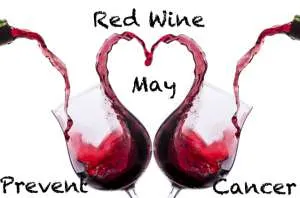
- Share on Facebook97
- Share on Pinterest
- Share on Twitter
Resveratrol is a polyphenolic compound that is found in the skin of red grapes, wine, plums, peanuts, and some other plants. It is believed to have antioxidant properties and provide other health benefits.
Resveratrol sensitized cancer cells to chemotherapy
In a 2011 study by the University of Texas MD Anderson Cancer Center in Houston, it was found that resveratrol made tumor cells more sensitive to chemotherapy.
During the study, it was discovered that the resveratrol had an effect on the cell-signaling molecules involved with the tumor’s resistance process. This was the means by which it heightened the sensitivity of the tumor cells to chemotherapy drugs.
The resveratrol weakened the cells’ resistance in different ways by influencing the following:
- The growth of the cancerous cells
- The way they communicated with each other
- How they destroyed themselves
- How they infiltrated healthy cells
Many types of cancer cells were equally affected
During the study, the resveratrol was tested on many different kinds of cancer cells, including leukemia, lung, prostate, myeloma, pancreatic, and oral cancers. They found that each type of cancer cell was made more sensitive to chemotherapy by the exposure to resveratrol.
According to the study authors, “Cancer cells are intelligent; they do whatever it takes to survive. The fact that tumor cells develop multiple chemoresistance mechanisms, and more than one mechanism may work simultaneously complicates the success of chemotherapy. In this regard, resveratrol seems to be an ideal candidate as an adjunct to chemoresistance.”
These findings hint at the premise that someday cancer patients may be able to use resveratrol to sensitize the cancer in their bodies and make the chemotherapy treatment more successful.
Other anti-cancer benefits of resveratrol
It turns out that resveratrol is a natural antibiotic produced by plants when they are faced with natural stressors. It is also a natural antioxidant with both antiaging and anti-inflammatory properties. Scientists wondered if these benefits would be as effective in humans as they are in plants, and research indicates this may be true.
 The findings of a review by Anupam Bishayee, Ph.D. with the Northeast Ohio Medical University, showed resveratrol had many properties that impede the growth of cancer cells.
The findings of a review by Anupam Bishayee, Ph.D. with the Northeast Ohio Medical University, showed resveratrol had many properties that impede the growth of cancer cells.
In the studies, when resveratrol was added to childhood cancer cells in a test tube, it inhibited the growth rate and increased the sudden death of the cells. It was also shown that rats who had been treated with resveratrol had slower tumor growth rates.
While he assures that more studies are necessary, Bishayee concluded his review by saying, “Resveratrol is a promising candidate in chemopreventative and chemotherapeutic strategies and a potential weapon in the effort to alleviate the burden of human cancer.”
—The Alternative Daily
Sources:
http://www.journalofsurgicalresearch.com/article/S0022-4804(13)00114-5/abstract
http://ebm.sagepub.com/content/236/6/658.full.pdf
http://www.jneuroinflammation.com/content/7/1/46
http://www.canceractive.com/cancer-active-page-link.aspx?n=1906
http://www.webmd.com/heart-disease/resveratrol-supplements
- Share on Facebook97
- Share on Pinterest
- Share on Twitter

